Czech verbs use the conjugation system which means that each grammatical person (I, you, we etc.) has a unique form. In this long lesson, you will learn the most important verb TO BE (být) and its negative and question forms.
Personal Pronouns
Before we get to the actual verb, let’s learn the personal pronouns:

I

you (sg.)

he

she

it

we

you (pl.)

they
You (sg.) and You (pl.)
Unlike English, the Czech language has two different pronouns for the pronoun YOU. Talking to or about one person, use TY. For more people always use VY. Look at the following examples:

“Ty jsi Tomáš.”

“Vy jste Alena, Petr a Jarek.”
Verb TO BE (BÝT)
Lets combine these pronouns with the verb to be (být).

I am

you are (sg.)
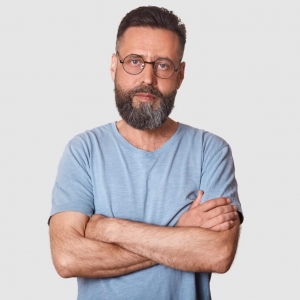
he is
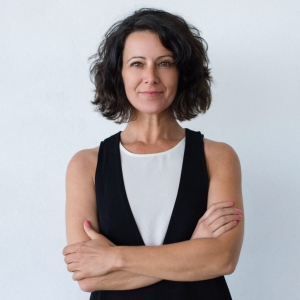
she is

it is

we are

you are (pl.)

they are
There are some affirmative sentences to work with:
- Já jsem muž.
- Ty jsi student.
- On je Tomáš.
- Ona je učitelka.
- To je hotel.
- My jsme rodina.
- Vy jste sestry.
- Oni jsou rodiče.
- Já jsem Petra.
- Ty jsi cizinec.
- On je táta.
- Ona je máma.
- To je miminko.
- My jsme děti.
- Vy jste ženy.
- Oni jsou muži.
Omitting Personal Pronouns
As you can see, each grammatical person has a unique form of the verb, this is called conjugation. Therefore, personal pronouns are usually omitted and not used in everyday speech unless you need to emphasise the subject of the sentence. Examine the following examples without pronouns. The sentences are easy to understand even without using já, ty, my and oni.

Hello, I am Honza.

You are good!

We are friends.

They are at home.
Throughout the lessons, you will be strongly encouraged NOT to use personal pronouns. You will sound much more natural without them.
The only personal pronoun which is always used is TO (it) (except for a few uses discussed in further lessons).

It is a modern car.

It is healthy breakfast.
Forming Negatives
Negative forms are very easy to create. You only need to add a negative prefix NE- in front of the verb.
- Já nejsem muž.
- Ty nejsi student.
- My nejsme rodina.
- Vy nejste bratři.
- Oni nejsou rodiče.
The only exception is the third person singular (he, she, it) whose negative form is NENÍ.

He isn’t at home.

She isn’t old.

It isn’t coffee.
Forming Questions
Questions are also easy to form. Like in English, you only need to change the word order so that the sentence starts with the verb.
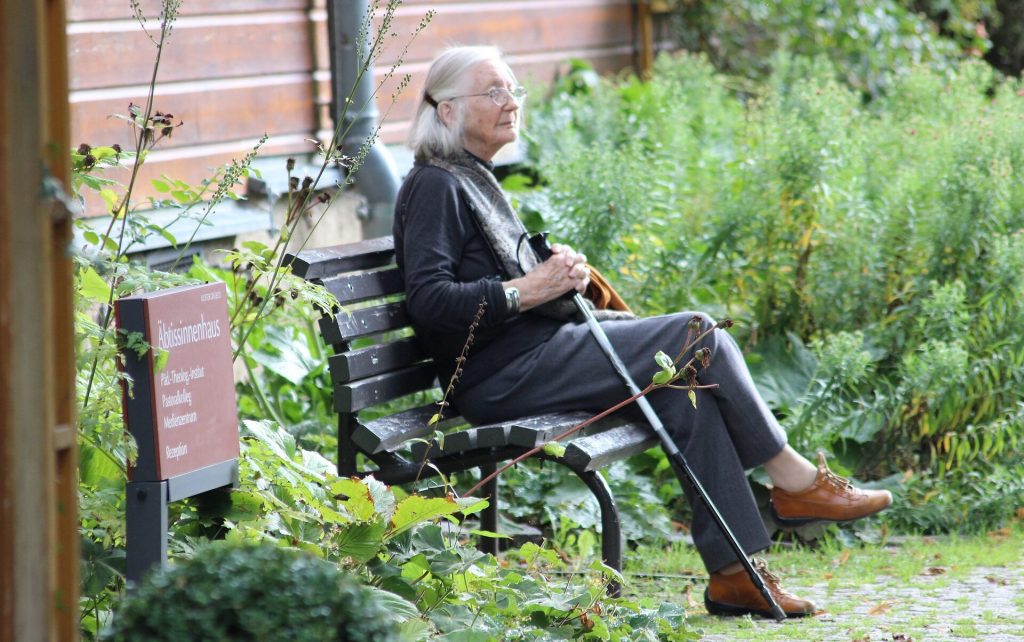
Is grandma happy?

Is the man young?

Are children at home?

Are the people outside?
Again, remember to omit the personal pronouns! They would sound extremely strange when used in questions.

Am I modern? Yes!

Are you fast?

Is it sweet? (TEN meloun)

Are we here on time?
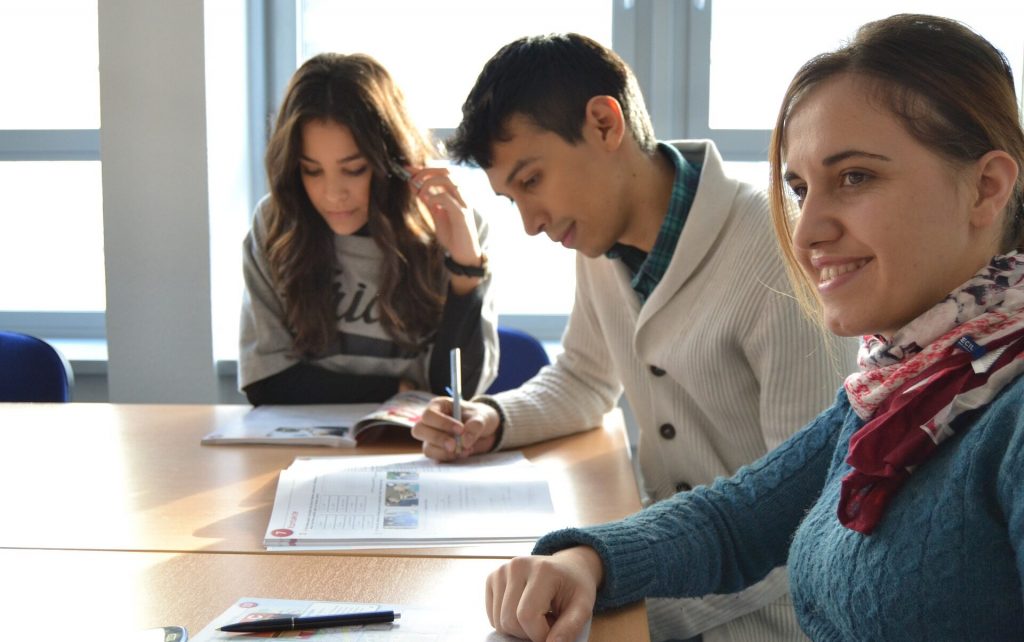
Are you students?

Are they at work?
However, the Czech word order is more free than the one of most other languages. This means you can also create questions by using the affirmative word order, placing a question mark at the end and raising your intonation towards the end of the sentence.
- To je čaj?
- Ty jsi ředitel?
- On je doma?
This is not recommended to the beginners as it requires practise. In this course, you will be usually required to form questions starting with a verb.
Forming Answers
There are two ways how to answer questions. Either short or long. In the short version, you never use the personal pronoun. The long version is actually a new sentence on its own and can include ten, ta, to when addressing something in the third person.

1) Ano, je.
2) Ano, ta květina je krásná.

1) Ne, není.
2) Ne, ta květina není krásná.

1) Ano, jsme.
2) Ano, (my) jsme dnes doma.

1) Ne, nejsme.
2) Ne, (my) nejsme dnes doma.
You may be tempted to say Ano, my jsme. or Ne, my nejsme. due to the English language influence. However, these forms with the personal pronoun are wrong!
Before you move on…
So far, this has been the longest and the most difficult lesson. Do not hurry to the next one and rather spend time reading it again and practising. If you have any questions, ask in the Discussion section below. Do not forget to revise all the vocabulary you have learn to this point.












- Jsi cizinec?
- Jsi doma?
- Jsi vysoký (vysoká)?
- Jsi dnes šťastný (šťastná)?
- Je máma mladá?
- Je táta ředitel?
- Je pivo zdravé?
- Jsou rodiče doma?
- Jsou kamarádi dnes v práci?
- snídaně
- kamarád
- učitelka
- lidé
- rodina
- miminko
- Jsi cizinec?
- Jsi doma?
- Jsi vysoký (vysoká)?
- Jsi dnes šťastný (šťastná)?
- Je máma mladá?
- Je táta ředitel?
- Je pivo zdravé?
- Jsou rodiče doma?
- Jsou kamarádi dnes v práci?
- snídaně
- kamarád
- učitelka
- lidé
- rodina
- miminko



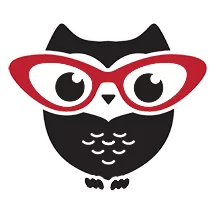






Ano, jsem cizinec. Ano, jsem doma. Ano, jsem vysoký ale ne o moc.… Read more »
A Answer the following questions. (When you use adjectives describing yourself, use the… Read more »
A • Jsi cizinec? Ano, jsem. • Jsi doma? Ano, jsem doma. •… Read more »
A) Ano, jsem Ano, jsem doma Ne, nejsem Ano, jsem dnes šťastná Ano,… Read more »
Jsi cizinec? – Ano, jsem. Jsi doma? – Ne, nejsem. Jsi vysoký (vysoká)?… Read more »
A) Ne nejsem. Ne, nejsem cizinec. Ano jsem. Ano, jsem doma. Ano jsem.… Read more »
Answer the following questions. (When you use adjectives describing yourself, use the correct… Read more »
Ne, nejsem cizinka. Ano, jsem doma. Ne, nejsem vysoká. Dnes nejsem tak štastná.… Read more »
Ne, nejsem cizinka Ano, jsem doma Ne, nejsem vysoká Ano, jsem dnes štástná… Read more »
Jsi cizinec? Ano,jsem cizinka Jsi doma? Ne, nejsem doma Jsi vysoký (vysoká)? Ne,… Read more »
Ano, jsem cizinka. Ne, nejsem doma. Ano, jsem vysoká. Ano, jsem dnes šťastná.… Read more »
Ano, jsem cizinec. Ano, jsem doma. Ano, jsem vysoký. Ano, dnes jsem št’astný.… Read more »
A. Ano, jsem. Ano, jsem. Ano, jsem. Ano, jsem dnes šťastný. Ne, není.… Read more »
Jsi cizinec? Ano, jsem cizinec Jsi doma? Ne, nejsem doma Jsi vysoký (vysoká)?… Read more »
A: Ano, jsem cizinka a jsem doma. Ne, nejsem vysoká. Ano, jsem št’astná.… Read more »
A. Ano, jsem starší cizinec. Ano jsem doma. Ano, jsem vysoký. Ne, nejsem… Read more »
A Ano, jsem cizinec. Ano, jsem doma. Ne, nejsem vysoký. Ne, dnes nejsem… Read more »
A Ano, jsem cizinec Ano, jsem doma Ano, jsem vysoký Ne, nejsem sťastný… Read more »
A. Ano, jsem cizinec. Ano, jsem doma. Ano, jsem vysoký. Ano, jsem dnes… Read more »
Jsi cizinec? Ano, jsem cizinec Jsi doma? Ano, jsem doma Jsi vysoký (vysoká)?… Read more »
Jsi cizinec? Ano, jsem cizinec. Jsi doma? Ne, nejsem doma. Jsi vysoký (vysoká)?… Read more »
A) Ano, jsem. Ne, nejsem. Ano, ja jsem vysoká. Ano, moje dynes šťastný.… Read more »
Jsi cizinec? Ano, jsem cizinec. Jsi doma? Ano, jsem doma. Jsi vysoký? Ne,… Read more »
Jsi cizinec? Ano, jsem cizinec. Jsi doma? Ano, jsem doma. Jsi vysoký (vysoká)? Ne, nejsem vysoký.… Read more »
Jsi cizinec? -Ano, jsem cizinec. Jsi doma? -Ano, jsem doma. Jsi vysoký (vysoká)?… Read more »
Jsem cizinka. Ano, jsem doma. Nejsem tak vysoká. Ano, jsem dnes šťastná. Moje… Read more »
Part A. Jsem cizinec. Jsem doma. Nejsem vysoká. Ne, máma neni mladá, Ne,… Read more »
Lesson 3. A. Jsi cizinec? Ano, jsem cizinec. Jsi doma? Ano, jsem doma.… Read more »
A. Jsi cizinec?- Ano, jsem cizinec. Jsi doma?- Ano, jsem doma. Jsi vysoká?-… Read more »
Part A Jsi cizinec? – Ano, jsem cizinec. / Ne, nejsem cizinec. or… Read more »
Part 1 Jsi cizinec? – Ano, jsem cizinec Jsi doma? – Ano, jsem… Read more »
Jsem cisince. Jsem doma. Nejsem vysoká. Jsem dnes šťástná. Ne, Mama není mlada.… Read more »
Task a Jsi cizinec? – ano, jsem Jsi doma? – ano, jsem doma… Read more »
Form 6 short questions and answers using the following words: (Try using only… Read more »
Answer the following questions. (When you use adjectives describing yourself, use the correct… Read more »
Jsi cizinec? Ano, jsem cizinec. Jsi doma? Ano, jsem doma. Jsi vysoký (vysoká)?… Read more »
Jsi cizinec? ✓Ano, jsem cizinecká Jsi doma? ✓ Ano, já jsem doma Jsi… Read more »
A: Ano, jsem cizinka. Ano, jsem doma. Ano, jsem vysoká. Ano, jsem šťastný… Read more »
Co je k snídani? Mají vaši kamarádi žizeň? Je učitelká stará? Jsou lidé… Read more »
Ano, jsem cizinec. Ne, nejsem doma. Ne, nejsem moc vysoký. Ano, dnes jsem… Read more »
Jsi cizinec? – Ano, jsem cizinec Jsi doma? – Ano, jsem doma Jsi… Read more »
A Jsi cizinec? Ano, jsem cizinec Jsi doma? Ano, jsem doma Jsi vysoký… Read more »